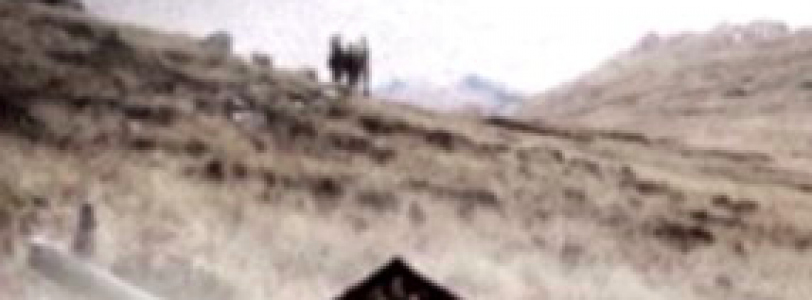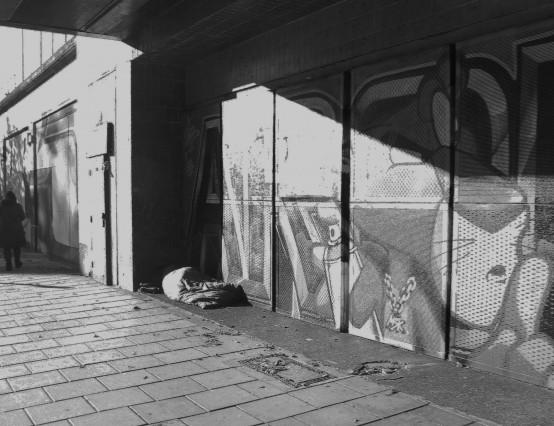It is 1982, a time of fraught political tension in the UK and abroad. Margaret Thatcher is seeking re-election and tensions are rising with Argentina over a couple of islands in the South Atlantic: The Falklands.
We have heard of the Falklands, though we’d probably struggle to identify the islands on a map. Quite rightly it is referred to as ‘the war that the world forgot’. The opening scene of the play shows the audience a montage of iconic figures and moments from the late 70’s an early 80’s, setting up the backdrop of the play.
The play seeks to give a historical and inside view on the forgotten war. I am told by one of the two actors after the play, that the characters were an amalgamation of a number of accounts from the war. The civilian experience is presented alongside the British soldiers, suggesting that for civilians there was moral confusion at to who was the enemy and who was the ally.
‘There ain’t nothing worth saving except our sovereignty’ perfectly sums up the warped nature of war waged over nothing but land. Was the war justified just so we could raise a British flag? To feel noble? A big old show for the folks at home?
The plot explains the sequence of events that lead up to the conflict and discusses issues of patriotism, national identity and political scandal. The effort to narrate an event in history and convey the facts was obvious, whereas the theatrical side of the script was underdeveloped.
Although I enjoyed learning more about a war that has long been overlooked, the play lacked-lustre and I struggled to stay engaged through the drawn-out dialogue. Perhaps it was due to an empty theatre on a late afternoon but the atmosphere was heavy and too subdued for a performative piece of theatre. The play was carried by only two actors and might have benefitted from a bigger cast to help convey the story. Similarly, the characters themselves were archetypes that have been played many times before and subsequently they were not believable. Perhaps the characters would have been more believable if their emotional complexity had been developed.
However, there were moments that managed to stir a reaction from the audience: the monologue describing the events of the Goose Green conflict and the civilian account of walking across the mine-ridden moors were insightful and compelling. Overall, the context of the play was interesting and it cannot be faulted for its historical accuracy but in an empty theatre on a stuffy afternoon the play did not achieve theatrical impact.
2/5








0 Comments